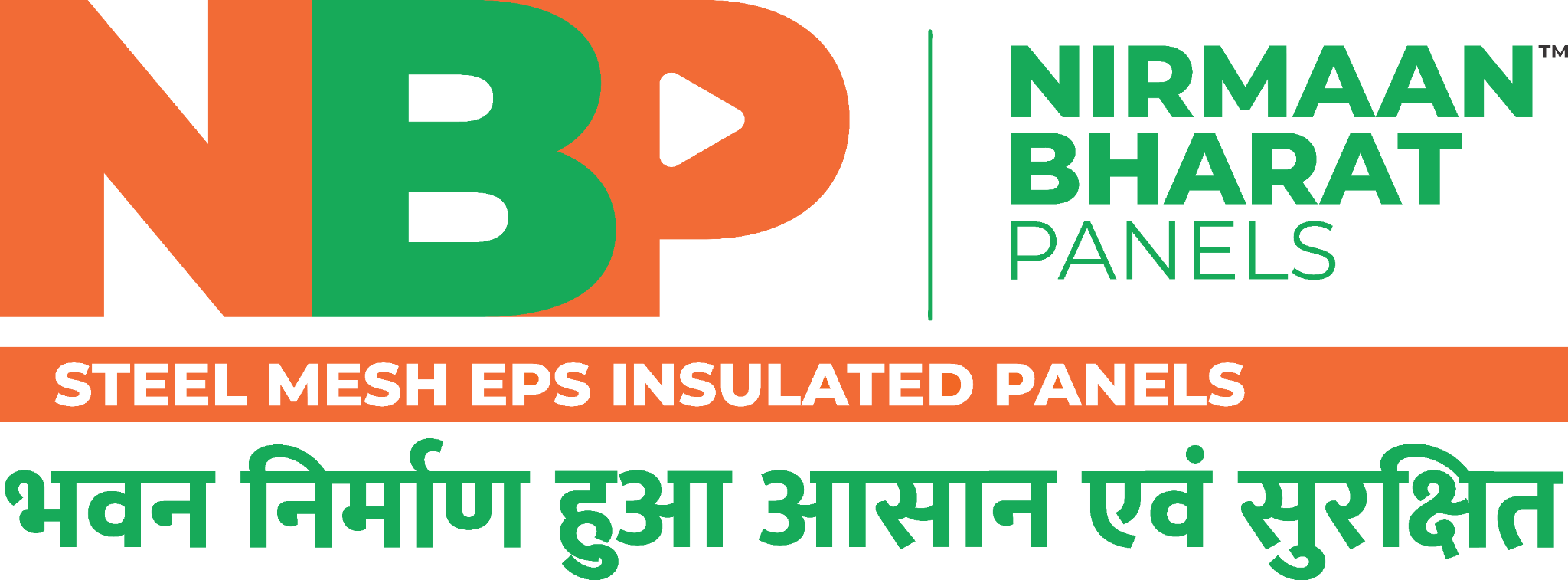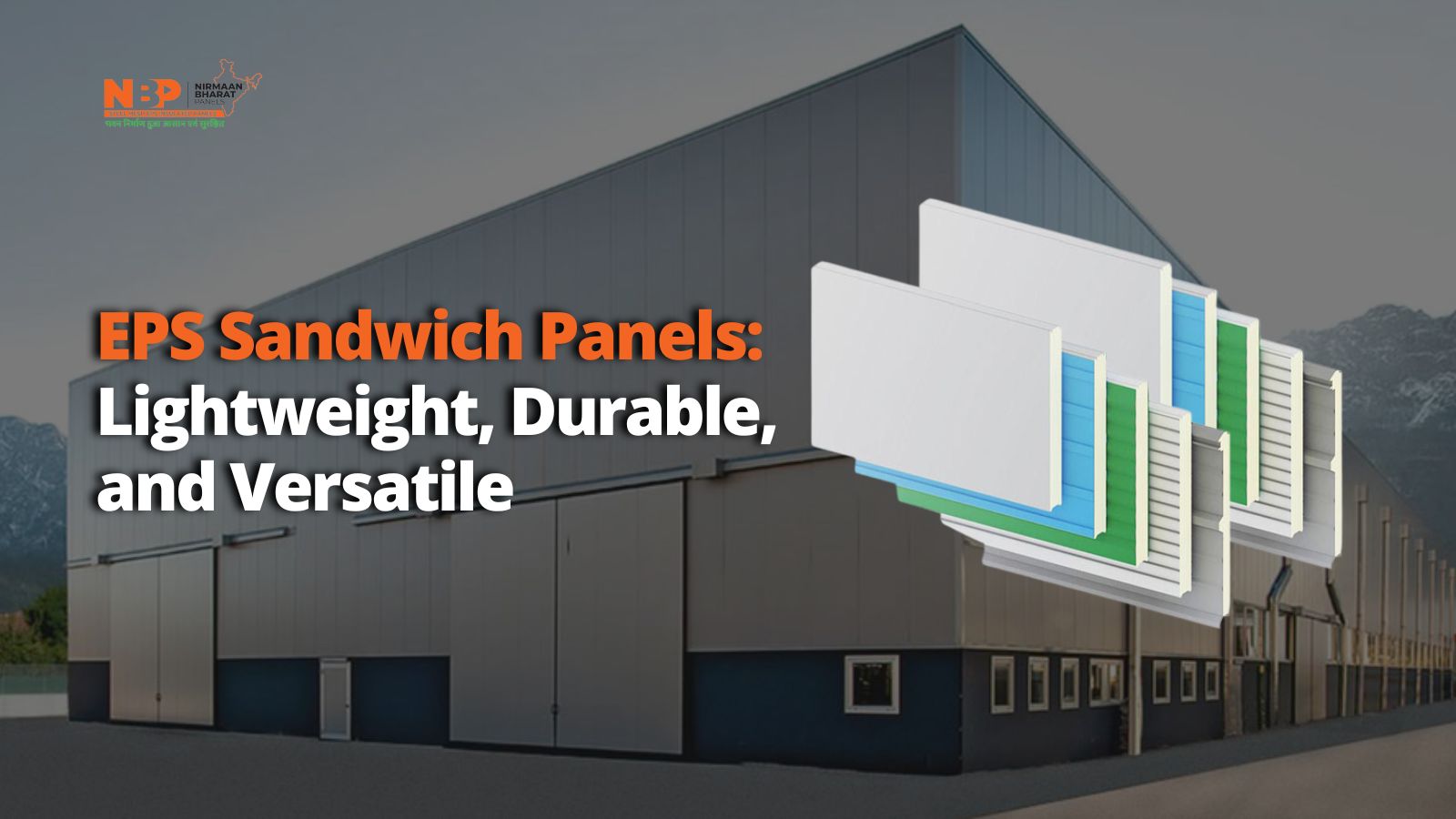In the ever-evolving construction industry, materials that combine functionality, sustainability, and cost-efficiency are in high demand. Among these, EPS (Expanded Polystyrene) sandwich panel have emerged as a revolutionary solution. Known for their lightweight, durable, and versatile characteristics, EPS sandwich panels are transforming how architects, engineers, and builders approach projects. This blog dives deep into what makes EPS sandwich panels a preferred choice, their applications, and the unmatched benefits they bring to the table.
Table of Contents
ToggleWhat Are EPS Sandwich Panels?
EPS (Expanded Polystyrene) Sandwich Panels are modern construction materials designed to provide lightweight, durable, and efficient solutions for building and structural needs. They consist of three layers: a core made of expanded polystyrene (EPS) sandwiched betw
een two outer layers, typically made of galvanized steel, aluminium, or other durable materials. These panels are highly versatile, offering excellent thermal insulation, structural integrity, and ease of installation.
Structure of EPS Sandwich Panels:
- Core Layer (EPS): The heart of the panel, made from expanded polystyrene foam, offers outstanding thermal insulation and lightweight properties. EPS is known for its closed-cell structure, which makes it resistant to moisture and enhances its insulating capacity.
- Outer Layers: Typically made of galvanized steel, aluminium, or fibre-reinforced plastic, these layers protect the EPS core and provide the panel with structural strength and durability. The outer layers are often coated with protective paints or finishes to prevent corrosion and wear.
Key Features of EPS Sandwich Panel
1. Lightweight Design
One of the standout features of EPS sandwich panel is their lightweight nature. The EPS core significantly reduces the overall weight of the panels, making them easier to handle, transport, and install compared to traditional materials like concrete or brick.
2. Thermal Insulation
The EPS core provides exceptional thermal insulation, helping regulate indoor temperatures and reduce energy consumption. This property makes EPS panels an excellent choice for energy-efficient buildings.
3. Durability
Despite being lightweight, EPS sandwich panels are remarkably durable. The rigid outer layers protect the core from mechanical damage, while the EPS core itself resists moisture, pests, and decay. This robustness guarantees an extended lifespan while requiring minimal upkeep.
4. Versatility
EPS sandwich panel can be customized in size, thickness, and finishing to meet specific project requirements. They are suitable for walls, roofs, and floors, making them a versatile choice for diverse applications.
5. Cost-Effectiveness
The combination of reduced material costs, faster installation, and energy savings makes the EPS sandwich panel a budget-friendly option for both large-scale and small-scale projects.
Benefits of EPS Sandwich Panels
1. Energy Efficiency
EPS panels’ high thermal resistance contributes to lower heating and cooling costs. This energy efficiency aligns with modern sustainability standards and reduces a building’s carbon footprint.
2. Ease of Installation
The lightweight nature and modular design of EPS sandwich panel make them quick and easy to install. This reduces construction time and labour costs, enabling faster project completion.
3. Structural Integrity
The combination of robust outer layers and a resilient EPS core ensures that EPS sandwich panels can withstand harsh environmental conditions, including extreme temperatures, high winds, and seismic activity.
4. Moisture and Weather Resistance
EPS sandwich panel are resistant to moisture infiltration, preventing mold and mildew growth. Additionally, they offer excellent weather resistance, making them ideal for both indoor and outdoor applications.
5. Aesthetic Appeal
Available in various finishes and colours, EPS panels can enhance the visual appeal of a building while maintaining functionality. Their sleek and modern design suits contemporary architectural trends.
Applications of EPS Sandwich Panels
1. Residential Construction
EPS sandwich panel are increasingly used in residential projects for walls, roofs, and partitions. Their thermal insulation properties make them ideal for creating energy-efficient homes.
2. Commercial Buildings
From office spaces to shopping malls, EPS panels provide a cost-effective and aesthetically pleasing solution for modern commercial structures. Their durability ensures long-term performance in high-traffic environments.
3. Industrial Facilities
EPS sandwich panel are widely used in warehouses, factories, and cold storage units. Their strength and insulation capabilities meet the demanding requirements of industrial applications.
4. Temporary Structures
For temporary buildings such as site offices, exhibition halls, and disaster relief shelters, EPS panels offer a quick and reliable construction solution.
5. Agricultural Buildings
In agricultural settings, EPS panels are used to construct barns, poultry houses, and storage facilities, where thermal insulation and moisture resistance are critical.
How EPS Sandwich Panels Are Manufactured
The manufacturing process of EPS sandwich panels involves a few critical steps:
- EPS Core Formation: Expanded polystyrene beads are heated and expanded to form a lightweight, rigid foam core.
- Outer Layer Preparation: The rigid outer layers (steel, aluminium, etc.) are cut and treated to ensure durability and adhesion.
- Bonding: The EPS core and outer layers are bonded together using high-quality adhesives or lamination techniques.
- Customization: The panels are cut and finished to meet specific project requirements, including size, thickness, and surface coating.
Comparison with Other Materials
EPS Sandwich Panels vs. Traditional Materials
- Weight: EPS panels are significantly lighter than concrete or brick, reducing structural load.
- Installation Time: Faster installation compared to traditional materials.
- Energy Efficiency: Enhanced thermal insulation leads to reduced energy expenses.
- Cost: Lower overall project costs due to savings in labour, materials, and energy.
EPS Sandwich Panels vs. PU Sandwich Panels
- Insulation: PU (polyurethane) panels offer slightly better thermal insulation, but EPS panels are more cost-effective.
- Environmental Impact: EPS panels are recyclable and have a lower environmental footprint.
- Cost: EPS panels are generally less expensive than PU panels.
Sustainability and Environmental Impact
EPS sandwich panels contribute to sustainable construction practices in several ways:
- Recyclability: EPS can be recycled into new products, reducing waste.
- Energy Savings: Their insulation properties lower energy consumption, decreasing greenhouse gas emissions.
- Resource Efficiency: Lightweight panels require fewer raw materials and less energy for transportation and installation.
Challenges and Solutions
While EPS sandwich panels offer numerous benefits, they also come with challenges:
1. Fire Resistance
- Challenge: EPS is combustible and may not meet fire safety requirements in certain applications.
- Solution: Adding fire-retardant coatings or using fire-resistant outer layers can enhance safety.
2. Structural Load Limitations
- Challenge: EPS panels may not support heavy structural loads.
- Solution: Combining EPS panels with additional structural reinforcements can address load-bearing concerns.
Future Trends in EPS Sandwich Panels
The demand for EPS sandwich panels is expected to grow as the construction industry focuses on sustainability and efficiency. Future innovations may include:
- Improved Fire Safety: Developing non-combustible EPS cores.
- Smart Panels: Integrating sensors for monitoring temperature, humidity, and structural integrity.
- Advanced Manufacturing: Leveraging robotics and AI for precision and customization.
Conclusion
EPS sandwich panels represent a game-changing solution in modern construction. Their lightweight, durable, and versatile nature makes them ideal for a wide range of applications, from residential and commercial buildings to industrial and agricultural facilities. By combining cost-effectiveness with sustainability, these panels align perfectly with the needs of contemporary construction projects.
At Nirmaan Bharat Panels, we are committed to delivering high-quality EPS sandwich panels tailored to your specific requirements. Whether you’re looking to enhance energy efficiency, reduce construction time, or achieve a sleek aesthetic, our panels offer unparalleled performance and value. Explore the endless possibilities with EPS sandwich panel and redefine the future of construction.



